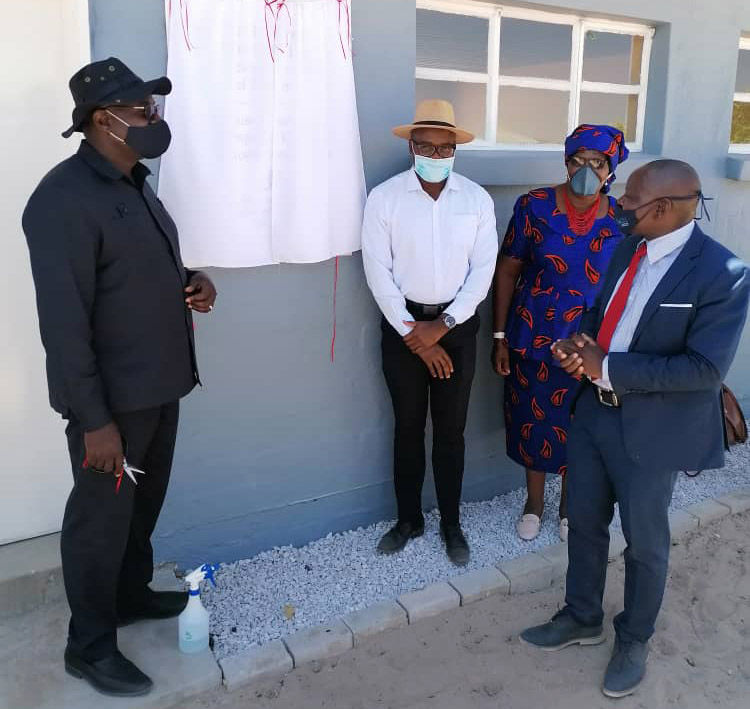The following articles and statements are provided for public information and copyright vests in the Development Bank of Namibia. For permission to use these items verbatim, or as excerpts, or for photographic permissions, please contact the Corporate Communications and Stakeholder Relationships Specialist on 061 290 8000.

A hand up for education. Development Bank of Namibia recently donated a block of three classrooms to Sakaria H.Nghikembua Primary School. Pictured at the commissioning of the block are FLTR: Governor of Ohangwena Region, Hon. Valde Ndevashiya, DBN CEO Martin Inkumbi, Hon. Lonia Shinana-Kaishungu; Councillor of Oshikunde Constituency and the Principal of Sakaria H. Nghikembua, Junias T. Nghishoongele.
Development Bank of Namibia (DBN) has donated a block of three classrooms valued at N$457,000 to Sakaria H. Nghikembua Primary School in Oshikunde Constituency in Eenhana. The school, with 152 learners, has been challenged by a shortage of classroom facilities.
Speaking about the Bank’s donation, and its involvement in education, DBN CEO Martin Inkumbi said that the Bank values education and see it as fundamental for the development and progress of the human race. He explained that the Bank has a scorecard for development impact of projects that it undertakes, and that education was highly rated on the scorecard.
Inkumbi expressed pride in the Bank’s track record of developing educational facilities. Among the large businesses and infrastructure projects DBN has financed over the years, there is a strand of finance for private schools as well as donations for public sector schools and educational initiatives.
In addition to the donation for Sakaria Nghikembua, the Bank also made a substantial donation towards a school hall for Romanus Kamunoko Secondary in Rundu, upgrading of hostel facilities and repairs to a school damaged by flooding. The Bank has provided finance for a number of privately operated pre-schools, schools and tertiary institutions.
Inkumbi said the learners of Sakaria Nghikembua and schools like it have a special significance for the Bank. Although the school is challenged by its lack of facilities, its learners are its future assets. The profile of the school indicates that approximately 90 percent of the learners face socio-economic challenges, Inkumbi pointed out.
Although Development Bank is dedicated to leveling the playing field for all Namibians, the Bank also sees a future for Namibia in people who learn to overcome their challenges.
Many people who rise above their obstacles and difficulties emerge on the other side as well-rounded individuals. They develop problem solving skills and become resilient to difficulties. People such as these return to serve and develop their communities, and become an important part of the future prosperity of Namibia, Inkumbi concluded.
In addition to its donations to education and educational initiatives, DBN also uses its corporate social investment activities to make impacts on poverty alleviation, community health and wellbeing, general skills development, the business environment and environment and biodiversity management.



